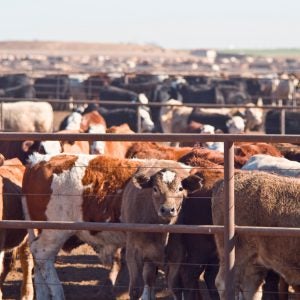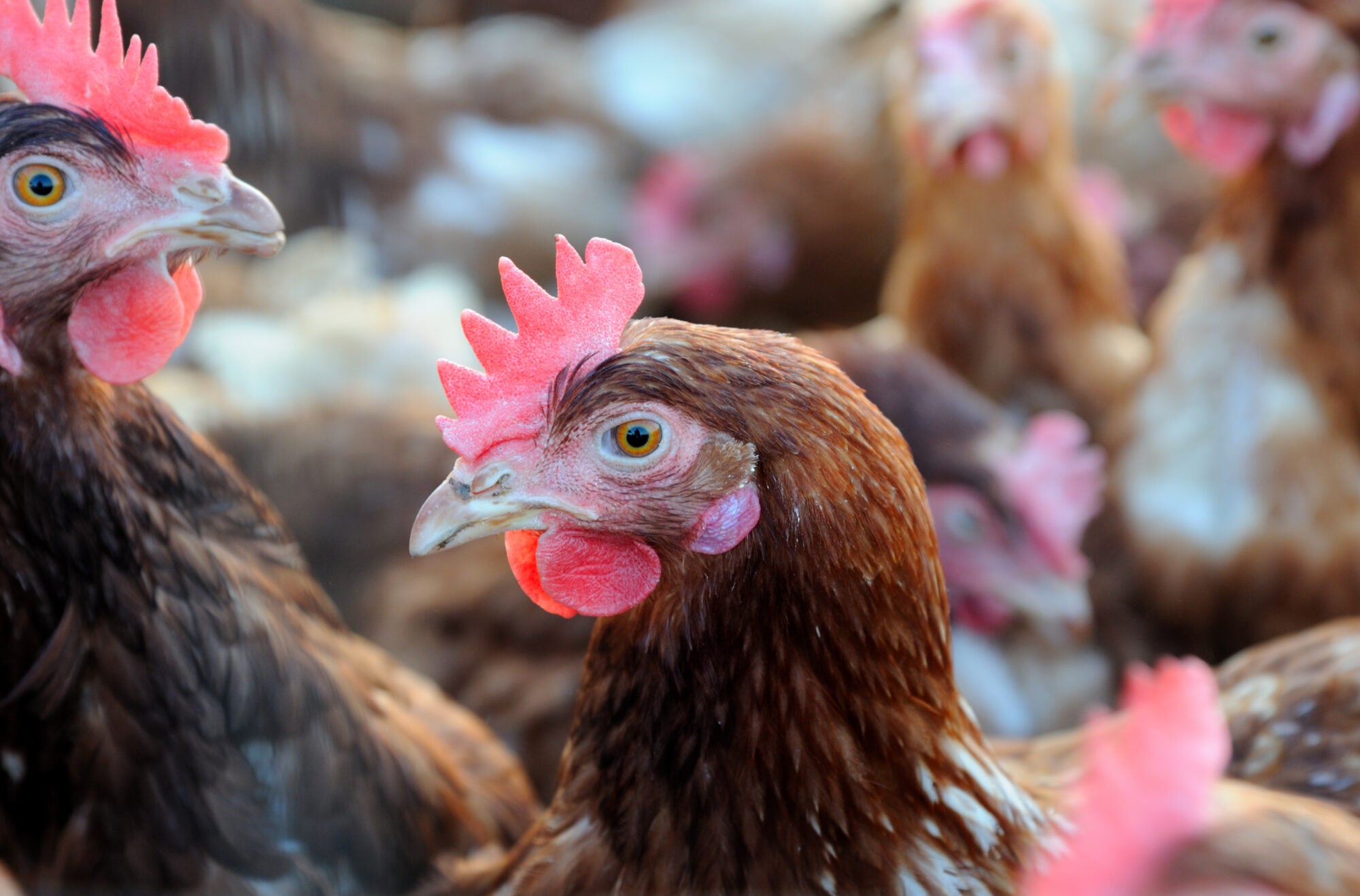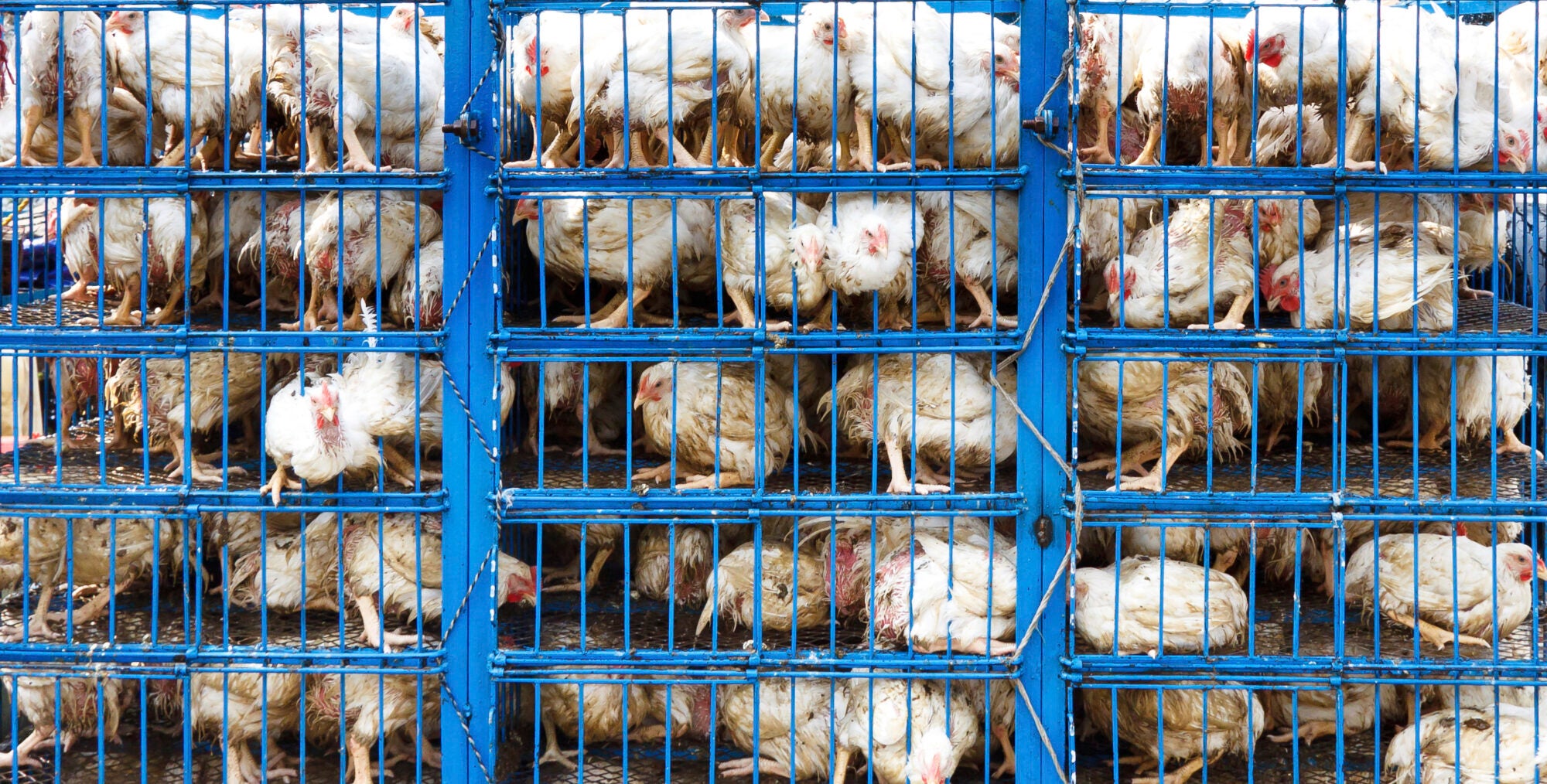
BONN, Germany—Today, given the urgent need to make transformative shifts across food systems World Animal Protection and Humane Society International hosted an event, ‘A just protein transition for sustainability, biodiversity and the climate’, at the UN Bonn Climate Change Conference. The panelists highlighted the need for more attention to be placed on industrial livestock production as a significant driver of climate change at the United Nations Climate Change Conference (COP27) to be held in Egypt in November. They are also asking for policymakers to take comprehensive action to drive a global transformation of our food production system and consumption habits, if we are to have any hope of meeting Paris Agreement targets.
The panel made-up of experts in food, climate, and animal welfare made the case for why a just protein transition is a crucial step towards reducing emissions. Speakers highlighted the importance for a just, humane and sustainable protein transition for Asia, as the largest meat producing region in the world, accounting for around 45% of total meat production, and forecasted to account for 53% of global trade by 2029.
“The latest Intergovernmental Panel on Climate report is clear: we are not on track to keep global temperatures to 1.5 degrees of warming as per the Paris Agreement,” said Stephanie Maw, public affairs and campaign officer for Humane Society International UK. “We need rapid transformations across all systems, including food systems, to avoid the worst climate impacts and address the mass animal suffering caused by industrial farming.”
“The scale of the suffering of billions of animals trapped in intensive factory farms is alarming and its very existence should shock and shame us, but it is also doing untold damage to our health, to biodiversity, to workers and to our entire planet,” said World Animal Protection CEO Steve McIvor.
“With a human population projected to surpass 9.7 billion people by 2050, combined with growing demand for meat and dairy, particularly across Asia and Africa, the spread of industrial livestock systems around the world will significantly increase their already devastating impact the environment, climate, public health, human rights and animal welfare in the years to come. Enabled in a timely manner, a just transition in livestock production would not only help mitigate the climate crisis, but could also serve as a strong driver of job creation, social justice, poverty reduction and better public health,” said Lasse Bruun, 50by40 CEO.
In response to these trends, World Animal Protection and 50by40, brought together 40 Asia-based civil society organisations working on climate change, public health, finance, smallholder farming, and human and consumer rights in March 2022 to map out the negative impacts of how protein is currently being produced, and to identify pathways for a shift toward a just, humane and sustainable protein system in Asia.
“Asia’s footprint as the largest meat producing region with significant growth forecast over the next 10 years is of great concern, will spike the region’s greenhouse gas emissions. The projection that Southeast Asia will become the fastest growing importer of soya for animal feed by 2022, will further aggravate climate change by threatening biodiversity and forest conservation. Given this context, the Communique titled ‘Asia Civil Society Call for a Just, Humane and Sustainable Protein Transition’ and its advocacy strategy, is an important and timely initiative to disrupt this unsustainable and climate-damaging trend,” said Nithi Nesadurai, Director and Regional Coordinator of Climate Action Network Southeast Asia.
ENDS
Media Contacts:
- Elodie Guillon, network manager, World Animal Protection, +66818603483, elodieguillon@worldanimalprotection.org
- David Garrahy, external affairs manager, World Animal Protection, +32 470 17 44 87, DavidGarrahy@worldanimalprotection.org
- Shweta Sood, head of programme, 50by40, + 91 99717 56347, shweta.sood@50by40.org
- Madeline Bove, media relations specialist, Humane Society International, 213-248-1548, mbove@humanesociety.org
Notes to editors:
The communique calls on world leaders at COP27 to put a halt to further expansion of factory farming systems and to recognise that a just, humane and sustainable protein transition is crucial to ensure that our global food system is in alignment with the goals of the Paris Agreement, the Convention on Biological Diversity, the objectives of the UN Food Summit and the UN Sustainable Development Goals.
According to the latest IPCC report, global carbon emissions need to be cut by at least 43% in the next eight years if we are to have any chance of meeting the 1.5 C warming target. The IPCC report also noted that even if fossil fuel emissions were halted now, current trends in global food systems emissions would make it impossible to reach the Paris Agreement goal
Globally, the livestock sector already accounts for at least 14.5% of current global greenhouse gas emissions, according to United Nations Food and Agriculture Organization (FAO).
Under a “business-as-usual” scenario, livestock production is projected to take up 81% of the global 1.5°C GHG budget by 2050, according to GRAIN and the Institute for Agriculture and Trade Policy (IATP).



